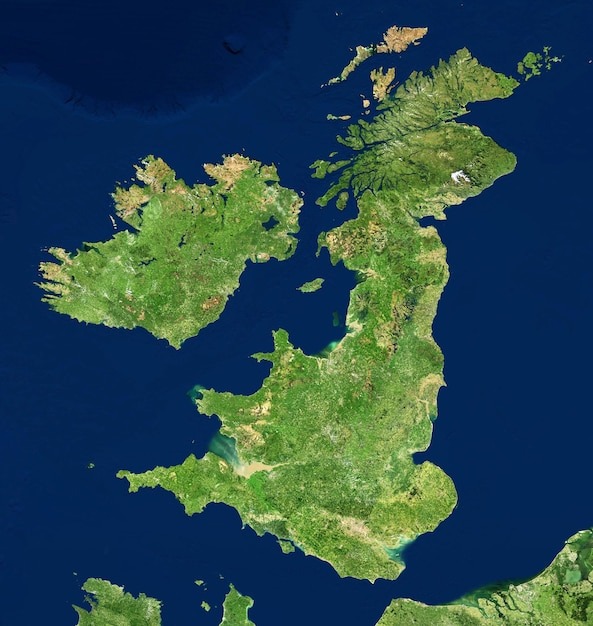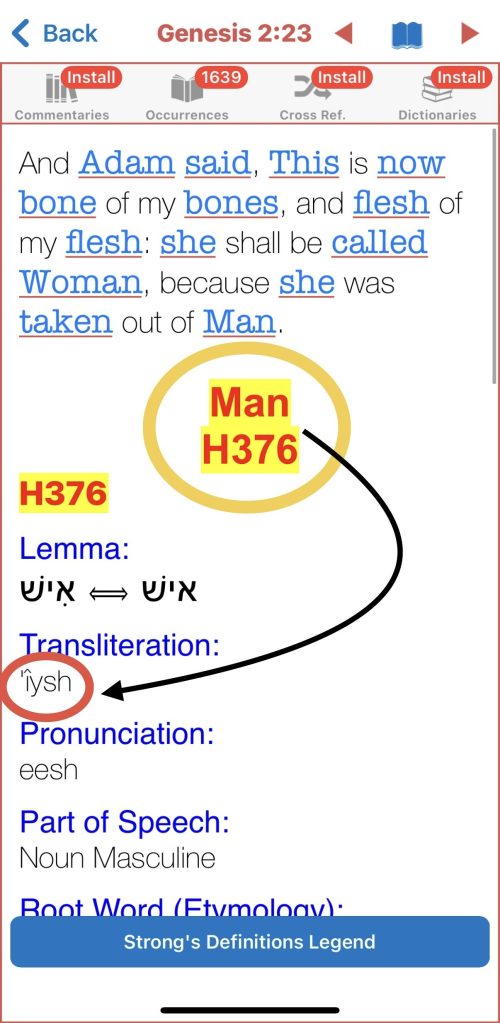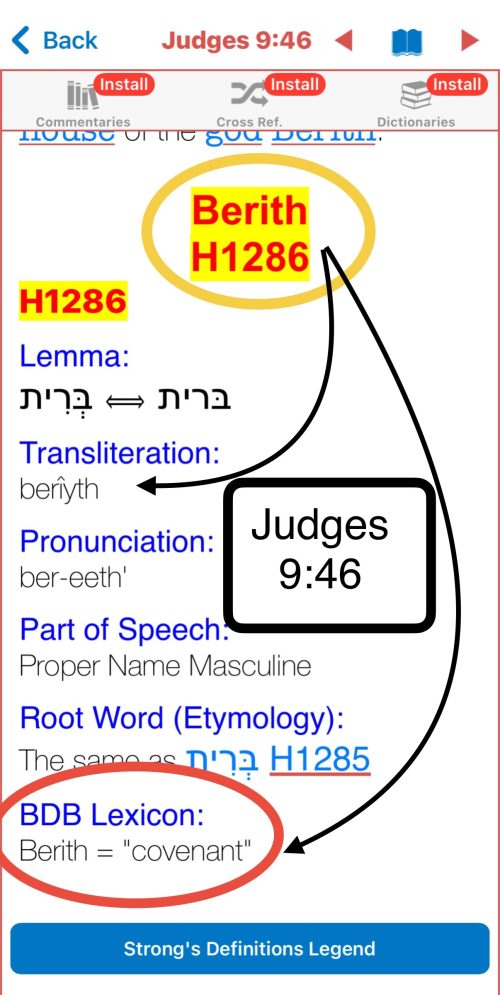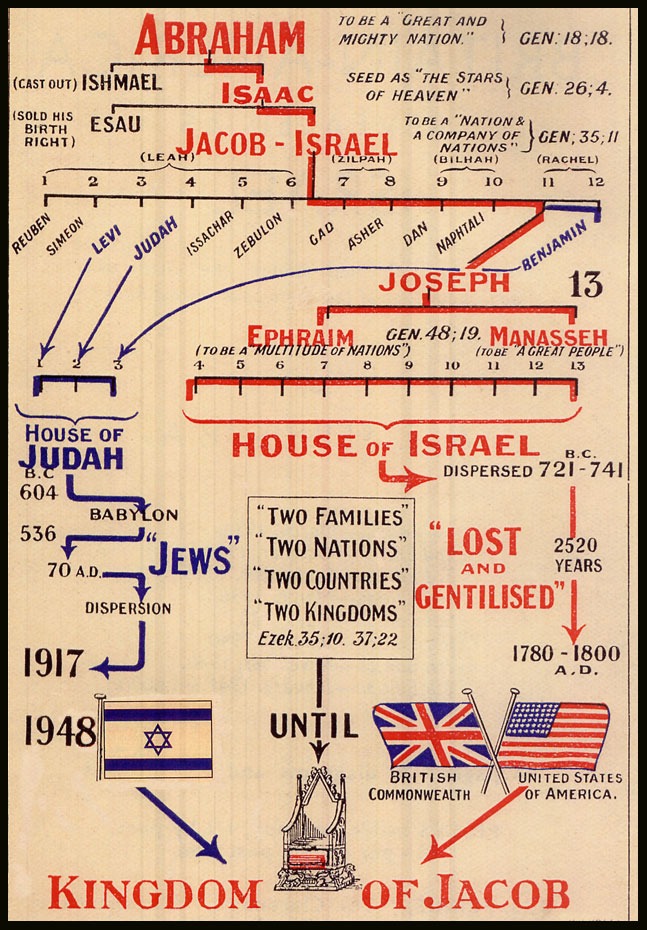The Capillary Wave: Word Index

“Rise like Lions after slumber In unvanquishable number,
Shake your chains to earth like dew, Which in sleep had fallen on you Ye are many – they are few”
– Percy Bysshe Shelley.

Part Two:
“Britain” is so much more than just a name of a land mass on Earth.
What Brit-ain is, and who the Brit-ish are, is of the utmost importance, as this index will evidence.
“Brit” is a Hebrew word meaning “covenant” which derives from the Hebrew word “berith“
“ain” is a Hebrew word meaning “land“
“iysh” is a Hebrew word meaning man, and or people
So Brit – ain, is the covenant land, and the Brit – ish are the covenant people.
This is hugely significant not only in terms of biblical genealogy, but also in terms of law and governance as heirs to the promise made by the God of Abraham, Isaac, and Jacob
The promise, or covenant was given by God to Jacob (Genesis 28:10-36:43)
Who are the British?
The Meaning Of Hebrew Word “Brit”
The sources for the origin of the Hebrew word בְּרִית (Brit), commonly translated as “covenant.”
The word “Brit” appears in the Hebrew Bible as a central concept of agreements between the divine and man.
Some argue it derives from notions of “cutting” (from the ritual of cutting animals in oath ceremonies), while others see a linguistic link to Akkadian birītu (“fetter, bond”) or berītu (“alliance”). Thus, the term likely carried both legal-contractual and ritual-sacral connotations from the start.
Key Sources
1. Koehler, L., & Baumgartner, W. (1994). The Hebrew and Aramaic Lexicon of the Old Testament.
Notes that brit may derive from Akkadian birītu (“fetter, bond”) and emphasizes its contractual sense.
2. Gesenius, W. (2003). Gesenius’ Hebrew Grammar. Oxford: Oxford University Press.
Connects brit with Semitic root brt, suggesting links to Akkadian and legal-ritual contexts.
3. Weinfeld, M. (1970). “The Covenant of Grant in the Old Testament and in the Ancient Near East.” JAOS, 90(2), 184–203. JSTOR link
Shows how brit reflects broader Near Eastern treaty language, especially Hittite and Assyrian suzerainty covenants.
4. Tigay, J. H. (1982). You Shall Have No Other Gods: Israelite Religion in the Light of Hebrew Inscriptions. Scholars Press.
Argues that brit in Israelite religion was shaped by both West Semitic legal traditions and local cultic practices.
5. Westbrook, R. (1991). Studies in Biblical and Cuneiform Law. Brill.
Analyzes legal-ritual dimensions of brit and its parallels to Akkadian treaty formulae.
6. Friedman, R. E. (1997). Who Wrote the Bible? Harper.
Notes that brit appears differently in priestly vs. Deuteronomic traditions, showing evolution of meaning from ritual-sacrifice to theological contract.
7. Eichrodt, W. (1961). Theology of the Old Testament. Westminster.
Emphasizes brit as Israel’s defining relationship with God, deeply tied to covenantal concepts borrowed from treaty models.
8. Mendenhall, G. E. (1954). “Covenant Forms in Israelite Tradition.” Biblical Archaeologist, 17(3), 50–76. JSTOR link
Argues that Israelite brit closely follows Hittite suzerainty treaty forms.
9. Cross, F. M. (1973). Canaanite Myth and Hebrew Epic. Harvard University Press.
Places brit within a broader Northwest Semitic cultural framework, showing linguistic continuity.
10. Kitchen, K. A. (2003). On the Reliability of the Old Testament. Eerdmans.
Discusses the treaty parallels and linguistic evidence for brit in the 2nd millennium BCE.
Summary of Evidence:
• Etymology: Likely from Akkadian birītu = bond/fetter, or linked to “cutting” rituals (root brt).
• Function: Used in legal, political, and religious contracts across the Ancient Near East.
• Biblical Usage: Expanded from treaty law into theology, defining Israel’s relationship with God.
So, brit embodies both ritual-sacrifice imagery (“cutting a covenant”) and legal-contractual obligations borrowed from ancient treaty culture.
The Meaning Of Hebrew Word “ain”
The word “ain” has multiple historical and regional meanings, particularly when related to land or territory. Based on linguistic and etymological studies:
General Meanings:
1. Arabic origin: In Arabic, ʿAyn (عين) means spring, eye, or source. In many Arabic-speaking regions, villages or lands named Ain are often associated with a water source or fertile land, making it synonymous with land suitable for settlement (Al-Ain in UAE, for example).
2. Scottish/Old English usage: In Scots, “ain” is a variant of “own.” While not directly “land,” in older Scottish ballads and poems, “ain land” means one’s own land or homeland. Example: “my ain land” = my own land.
3. Hebrew context: The Hebrew word עין (ayin/ain) also means spring or well. Like Arabic, this ties directly to land fertility and settlement areas.
4. French toponymy: In France, Ain is the name of a département (region). Its etymology traces back to the Celtic At(h)enos, meaning “river.” Land around it was identified with the river.
Scholarly Sources
• Kassis, H. (1983). A Concordance of the Qur’an. University of California Press. [Arabic roots of ʿayn meaning “spring” and “land of fertility”].
• Jamieson, J. (1882). An Etymological Dictionary of the Scottish Language. Paisley: Alexander Gardner. [Scots “ain” = “own”].
• Klein, E. (1987). A Comprehensive Etymological Dictionary of the Hebrew Language. Carta. [Hebrew ʿayin = spring].
• Room, A. (1997). Placenames of the World. McFarland. [French region Ain from Celtic river-root].
• Wehr, H. (1976). A Dictionary of Modern Written Arabic. Otto Harrassowitz. [Arabic ʿayn].
• MacBain, A. (1911). Etymological Dictionary of Scottish Gaelic. Stirling. [“ain” in Celtic-related usage].
• Watts, V. (2004). Cambridge Dictionary of English Place-Names. Cambridge University Press. [Historical sense of “ain land”].
• Nicolaisen, W. F. H. (1976). Scottish Place-Names. Batsford. [Scots “ain” usage in territorial context].
• Beekes, R. (2010). Etymological Dictionary of Greek. Brill. [Comparative Indo-European parallels with “ain”].
• Woodard, R. (2008). The Ancient Languages of Europe. Cambridge. [Celtic roots of place-names like Ain].
Summary:
The word “ain” in relation to land mainly means “source/spring” (Arabic, Hebrew) or “own/homeland” (Scots/Old English). In French and Celtic toponymy, it connects to rivers, hence land around water. This is why it makes up parts of the words: Mount – ain, Terr – ain, Fount – ain
Meaning Of Hebrew Word “iysh”
The Hebrew word ’îš (אִישׁ) is a central term in Biblical Hebrew, often translated as “man” but with a nuanced range of meanings.
Collective Insights from Scholarship
1.Etymology & Roots
• ’îš is believed to derive from a common Semitic root, attested in Ugaritic, Akkadian (īšu), and other Northwest Semitic languages, generally meaning “man,” “individual,” or “husband.”
• It is sometimes contrasted with ’ādām and geḇer (man in strength/warrior).
• Some scholars propose that ’îš carries more of a relational or societal nuance (husband, citizen, individual of a group) rather than just biological maleness.
2.Biblical Usage
• Appears over 2,000 times in the Hebrew Bible.
• Used for:
• Individual person (Genesis 2:23: “this one shall be called ’ishah because she was taken from ’îš”).
• Husband (Exodus 21:3).
• Specific person of rank or character (“a man of God”).
• Plays a role in theological anthropology—defining a peoples identity in relation to God and woman (’îš / ’iššāh).
3.Theological and Cultural Meaning
• The pairing of ’îš (man) and ’iššāh (woman) emphasizes complementarity and relational identity.
• Rabbinic commentators often highlight that ’îš embodies individuality, while ’ādām emphasizes collective humanity.
• In mystical traditions, the word is also linked to concepts of divine image and covenant roles.
Key References
• Barr, J. (1961). The Semantics of Biblical Language. Oxford University Press.
• Koehler, L., Baumgartner, W., & Stamm, J. J. (1994). The Hebrew and Aramaic Lexicon of the Old Testament (HALOT). Brill.
• Jenni, E., & Westermann, C. (1997). Theological Lexicon of the Old Testament. Hendrickson.
• Brown, F., Driver, S., & Briggs, C. (1906). Hebrew and English Lexicon of the Old Testament (BDB). Oxford.
• Kogan, L. (2015). Genealogical Classification of Semitic: The Lexical Isoglosses. De Gruyter.
• Tropper, J. (2000). Ugaritische Grammatik. Münster: Ugarit-Verlag.
• Gesenius, W. (2013 reprint). Hebrew Grammar. Dover.
• Botterweck, G. J., Ringgren, H., & Fabry, H.-J. (eds.). (1974–2006). Theological Dictionary of the Old Testament. Eerdmans.
• Tov, E. (2012). Textual Criticism of the Hebrew Bible. Fortress Press.
• Greenberg, M. (2008). Studies in the Bible and Jewish Thought. JPS.
Summary:
The Hebrew word ’îš originates from a common Semitic root meaning “man,” and in the Bible it designates not only a man, but also mankind, people. It can also be a social role like servant, husband see Strong’s Concordance definition of Man at: Genesis 2:23, KJV 1611
Brit = Covenant
Brit + ain = Covenant Land
Brit + ish = Covenant people
Britain is the land of the covenant people. The people of Gods promise through Abraham, Isaac, and Jacob
A source for the photographs:
Iphone application for Bible with Strong’s Concordance:


The Isaac Sons
The son’s of Isaac are the peoples of the biblical covenant; by definition
At the land of the covenant people: Brit – ain those covenant people are known as Saxons, which is a machination of the words “Isaac son’s”.
Isaac son’s are the [Anglo] Saxons. If you say the words Isaac son’s quickly, you will better understand how we came to be called “Saxons”, (saac son’s) over time
At Brit-ain we have the west Isaac son’s (Saxons) – Wessex: covering much of Hampshire, Wiltshire, Dorset, Somerset, parts of Devon and Berkshire
We have the south Isaac son’s (Saxons) – Sussex: East Sussex, West Sussex, on the south coast of England
We have the east Saxon’s – Today the county of Essex, northeast London
We also have the middle Saxons – historically the area around Greater London though the county of Middlesex no longer exists administratively the name survives in places like Middlesex University
There are other covenant peoples here too:
Hibernia, like Iberia are words for “Hebrews”
The Welsh language is very similar to Hebrew
Further afield the Tribe of Dan settled in Denmark, and the Gauls / Celts are the Galatians
The below documentary explains these things in much more detail.
What Is The Covenant?
A covenant is the promise made by God to Abraham, Isaac and Joseph’s generation
A summary of the biblical covenant:
Abraham
• God called Abram out of his country and promised:
• “I will make of thee a great nation, and I will bless thee, and make thy name great” (Genesis 12:2).
• “Unto thy seed will I give this land” (Genesis 12:7).
• God covenanted to give him and his seed the land of Canaan for an everlasting possession (Genesis 13:14–15; 17:7–8).
• His seed would be as the dust of the earth and as the stars of heaven (Genesis 13:16; 15:5).
• God confirmed His covenant by sacrifice, saying: “Unto thy seed have I given this land, from the river of Egypt unto the great river, the river Euphrates” (Genesis 15:18).
• The covenant was sealed in the command of circumcision as a token (Genesis 17:10–11).
• Through Abraham’s seed, “shall all the nations of the earth be blessed” (Genesis 22:18).
Isaac
• The covenant was confirmed to Isaac:
• “Sojourn in this land, and I will be with thee, and will bless thee: for unto thee, and unto thy seed, I will give all these countries, and I will perform the oath which I sware unto Abraham thy father” (Genesis 26:3).
• God promised to multiply Isaac’s seed as the stars of heaven, and to give them all these lands (Genesis 26:4).
• The blessing of all nations through his seed was restated (Genesis 26:4).
Jacob
• The covenant was further confirmed to Jacob:
• In Bethel, God said: “The land whereon thou liest, to thee will I give it, and to thy seed” (Genesis 28:13).
• His seed would be as the dust of the earth, spreading abroad to the west, east, north, and south (Genesis 28:14).
• “In thee and in thy seed shall all the families of the earth be blessed” (Genesis 28:14).
• God changed his name to Israel, declaring:
• “A nation and a company of nations shall be of thee, and kings shall come out of thy loins” (Genesis 35:11).
• The land given to Abraham and Isaac was confirmed to Jacob and his seed after him (Genesis 35:12).
Summary:
The covenant through Abraham, Isaac, and Jacob in the KJV 1611 is that God would make of them a great nation, multiply their seed as the stars of heaven and the dust of the earth, give them the land of Canaan for an everlasting possession, bring forth kings from their lineage, and that through their seed all nations of the earth would be blessed.

A Documentary About The Peoples Of Britain
What Is The UNITED KINGDOM?
At law the United Kingdom is what is known as a body politic
The UNITED KINGDOM (UK) is a creation of the law, a “legal fiction”. A legal fiction does not exist in reality, it only exists in your mind. That is why it is represented in the link at the above webpage by a flag – the Union Jack, a drawing of some heraldry (Lion & Unicorn), and a song called an anthem, because it can not show you what the UNITED KINGDOM is, because it does not exist; so it shows you other things which conjure up an image in your mind. The Union Jack, represents the legal fiction belonging to the Crown – UNITED KINGDOM – the Ens Legis. The people of Britain being of the covenant of God are called to represent Christ – not a legal fiction!
Something that is a creation of the law; like the UNITED KINGDOM is known as an ens legis
A legal fiction needs these other things to represent it because it does not exist in reality, because it is a creation of the law.
This is why your local council in the UNITED KINGDOM is also a “body corporate”, which is a legal fiction, an Ens Legis, as evidenced here in Section 2. (3) of the Local Government Act 1972
Your local police constabulary are also an Ens Legis of the UNITED KINGDOM, and as such are listed as a company at a business search directory on the Dunn & Bradstreet website, as evidenced here:
And this is also why everyone who “appears” at a UNITED KINGDOM court for summary and indictable offences, are also seen as a “body corporate”, as evinced here at Section 2. of the Interpretation Act 1889
- Word Index: Appear
This is because nothing that is real (like a people) can “be” in a legal fiction, an Ens Legis. This is why you have to “appear” at court and not “be“at court, because the UNITED KINGDOM does not exist in reality -see “appear” above for further explanation
God created the land mass named Britain, and the Crown created the country titled: UNITED KINGDOM [and the COMMONWEALTH]
- Word Index: Land Mass
- Word Index: Country
This all makes sense logically because all of these things are associated to the UNITED KINGDOM, which itself is a fiction, a creation of the law; including it’s citizens: see below index:
- Word Index: Citizen
My talk here explains these distinctions in much more detail:
A Nation And The Country
This is another important distinction to make, especially when it pertains to Britain and the UNITED KINGDOM, because they are two very separate and distinct things, and which one you claim to “live” on, will decide your fate at law in the UK courts.
We have evidenced what Britain is in relation to what God created, and His people of the covenant. We have also evidenced that which was created by the Crown, the legal fiction, the body politic known as the UNITED KINGDOM.
The UNITED KINGDOM is the title of a fictional entity, a creation of the law, the state. We have evidenced that the state, is what is known by the legal profession as an “ens legis“.
- Word Index: State
A people can not live in a legal fiction. That is not logical. Therefore the state created it’s own “citizens” to “live” in it’s state, the body politic. The citizens are a creation of the state, which belong to the state. This is discussed and evidenced in my talk at the WT Festival at Cumbria :
A nation is in relation to Britain, and to a generation of people(s). A nation is in relation to bloodlines, reality, a creation of God; whereas a country is in relation to legal fictions, citizens, who are a creation of the state. Two separate creators, of two separate jurisdictions; those being, that which is legal which is created by the state, and that which is lawful which is created by God. Those are the two systems of law available to man on Earth, there is nowhere else to go, no other system of law to live under. We have to chose which master we want; God or the Crown
In summary, a people are creation of God, a nation, and exist on the land mass – in this case Britain
At law citizens are legal fictions. Citizens are a creation of the state, and belong to the state by definition
- Word Index: Nation
Citizens and the state stand in opposition to God. See my open letter to Christian of the world for a deeper explanation: